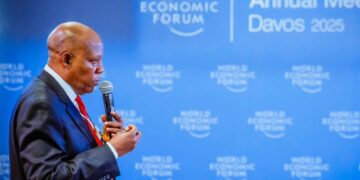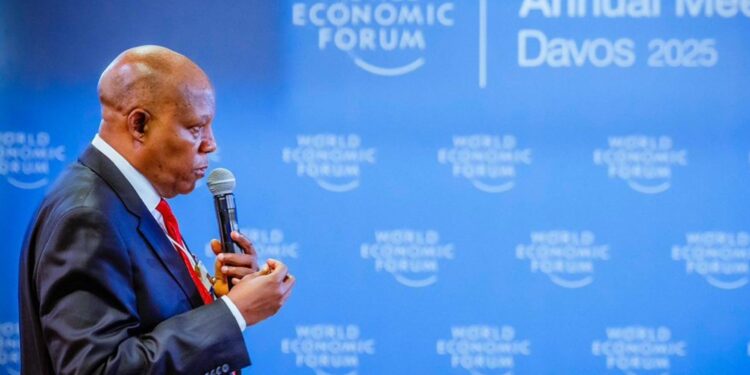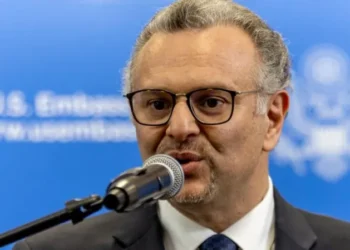By Enyichukwu Enemanna
Africa’s most populous nation, Nigeria, says it is ready to lead the charge in championing the full implementation of the African Continental Free Trade Area (AfCFTA), aiming to elevate the continent’s economy to $29 trillion by 2050, Nigeria’s Vice-President, Kashim Shettima, assured at the ongoing World Economic Forum (WEF) in Davos, Switzerland.
He joined other global leaders in expressing their nations’ support for the AfCFTA during a session titled “Forum Friends of AfCFTA: Turning Digital Trade into a Catalyst for Growth in Africa” at the annual gathering.
Nigeria expressed its commitment to leading the AfCFTA initiative and leveraging its market potential for digital transformation and economic integration across the continent, Senior Special Assistant to the President on Media and Communications, Stanley Nkwocha, said in a statement.
He quoted Shettima as telling the Forum that Nigeria’s dedication to AfCFTA stems from the desire to ensure shared prosperity on the continent. He added that Africa is uniquely positioned to address global talent shortages, citing a Korn Ferry study predicting a global human talent deficit of over 85 million people by 2030.
“By 2050, Nigeria’s population will surpass that of the United States, becoming the third most populous nation on earth, with 440 million people,” Shettima stated, according to the statement.
Highlighting Africa’s expanding digital landscape, Shettima pointed out Nigeria’s technological advancements, with 220 million telecom subscribers and 163 million internet users.
The Nigerian Vice-President emphasised the potential for digital empowerment and economic growth, comparing Nigeria’s highest oil export earnings of $35 billion in 2011 to India’s $120 billion earnings from outsourcing last year.
“The African Continental Free Trade Area is not only an economic arrangement but a bold statement of our shared destiny,” Shettima asserted, adding that while Africa may have missed the agricultural and industrial revolutions, it is well-positioned to thrive in the post-industrial knowledge age.
WEF President, Børge Brende, while welcoming the leader of the Nigerian delegation and other African leaders, underscored the continent’s demographic advantage and its potential for unprecedented growth.
Brende highlighted the transformative potential of the AfCFTA, projecting that its full implementation could significantly boost Africa’s economy by 2050.
He noted that supporting AfCFTA Secretary-General Mene Wamkele could increase intra-African trade by 50%.
“As of today, $29 trillion represents one-third of the global GDP. Africa is such a growing continent, and one of its key promises is demography. The challenge now is creating new jobs for the youth population,” Brende stated.
AfCFTA is a free trade agreement between 55 African Union (AU) countries and eight Regional Economic Communities (RECs). The AfCFTA’s goal is to facilitate the movement of goods and services across Africa and make the continent more competitive in global trade. Trading under the AfCFTA began on 1 January 2021.



































